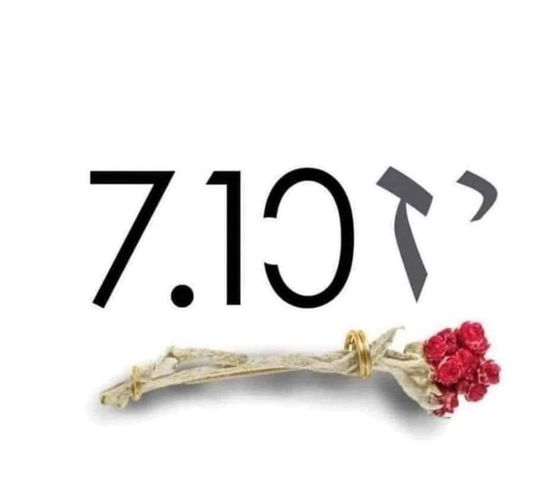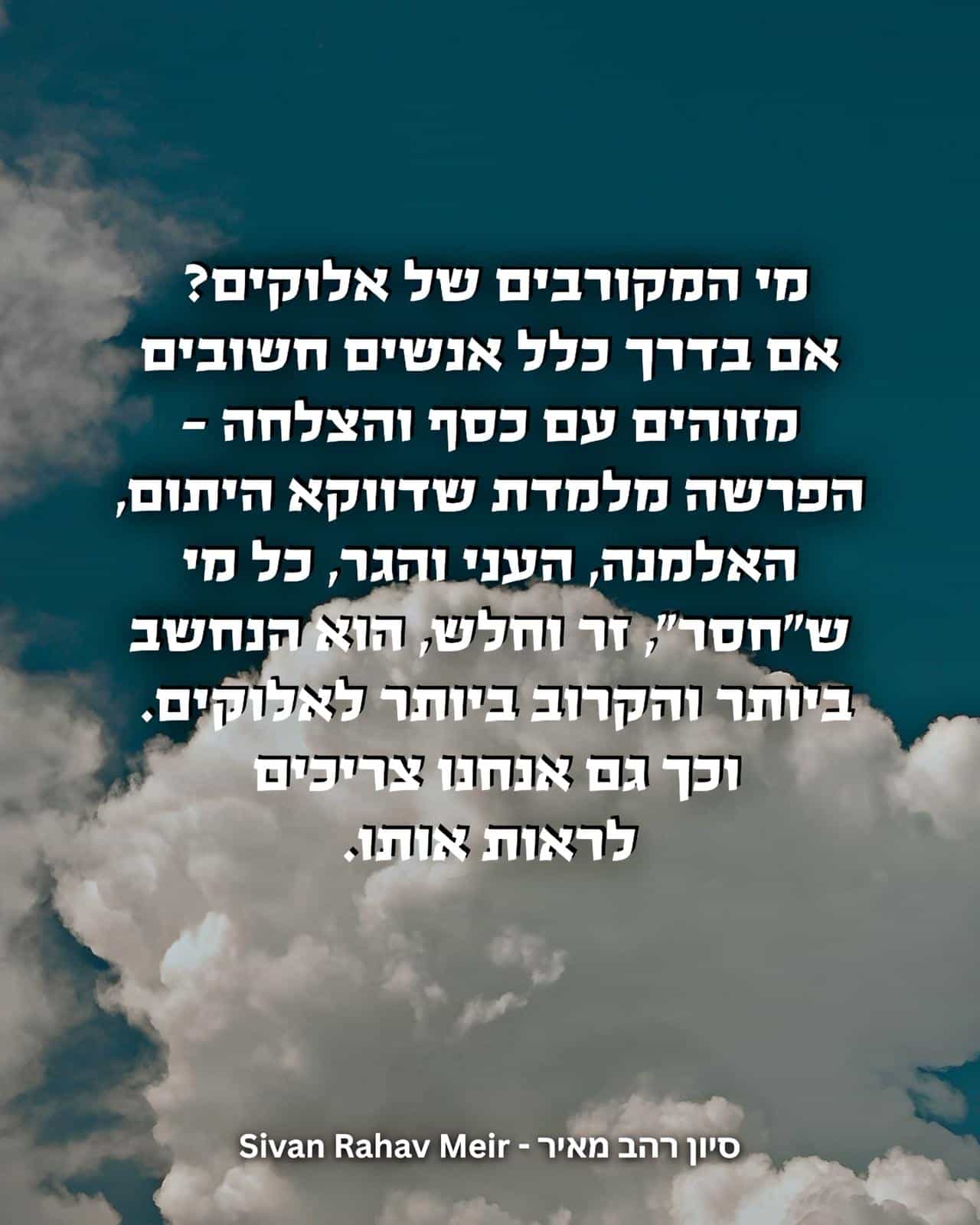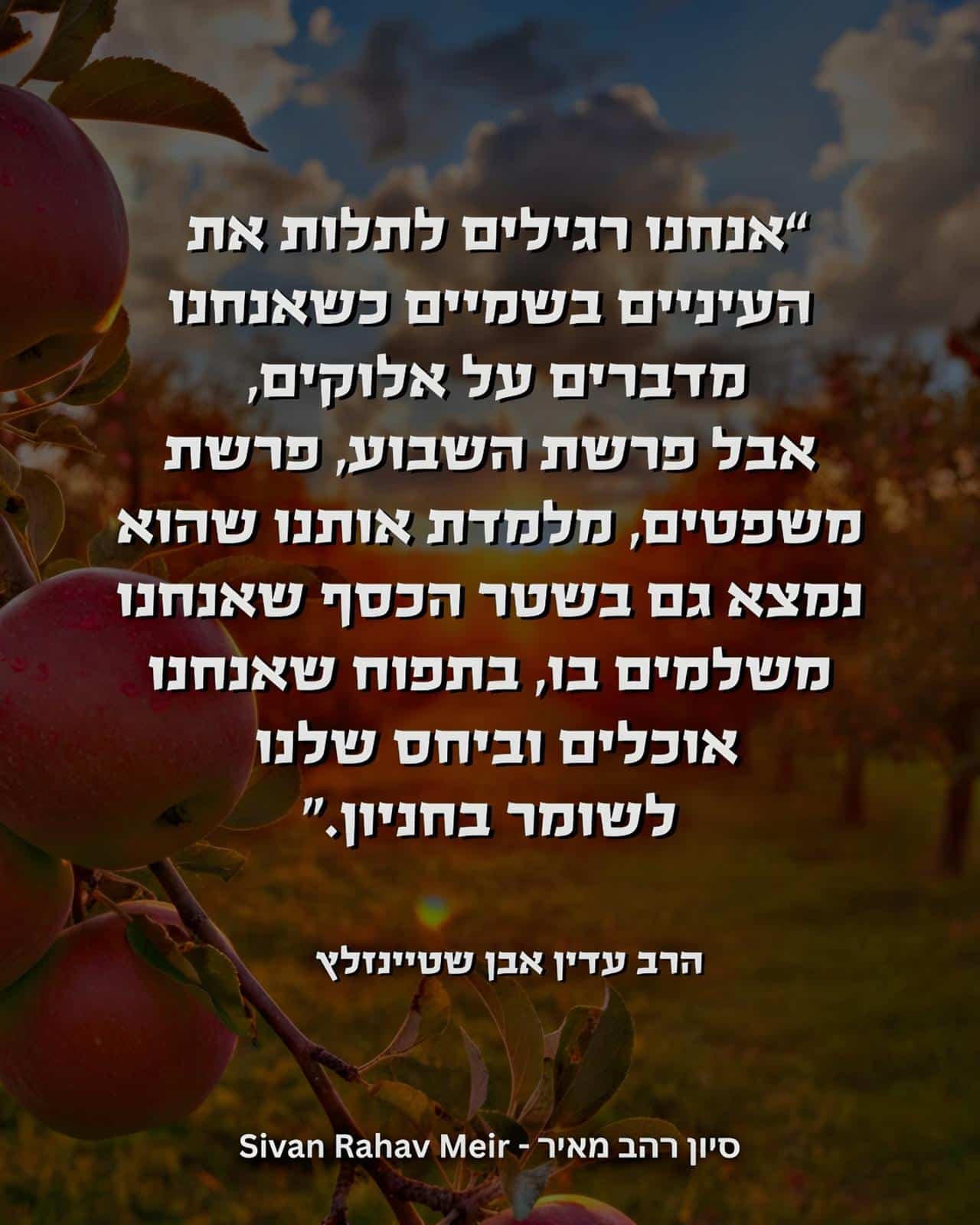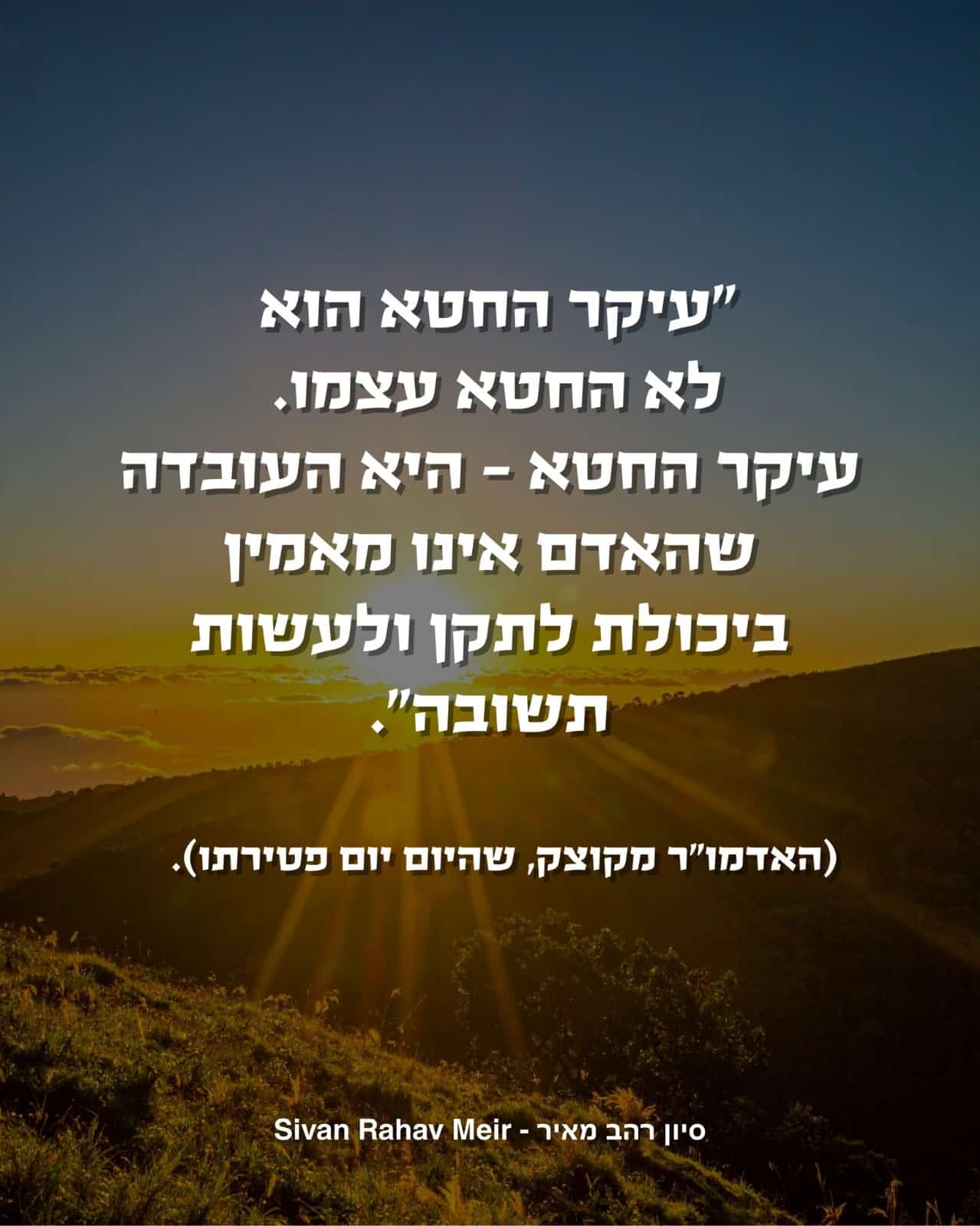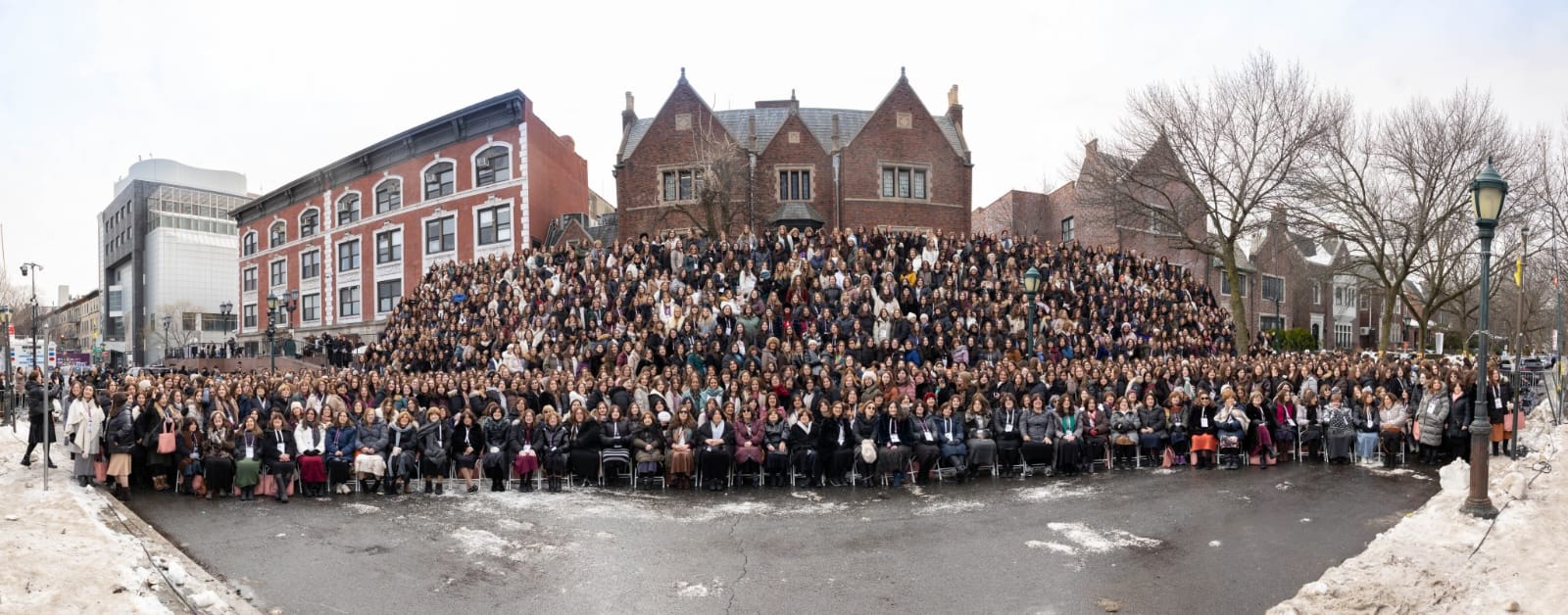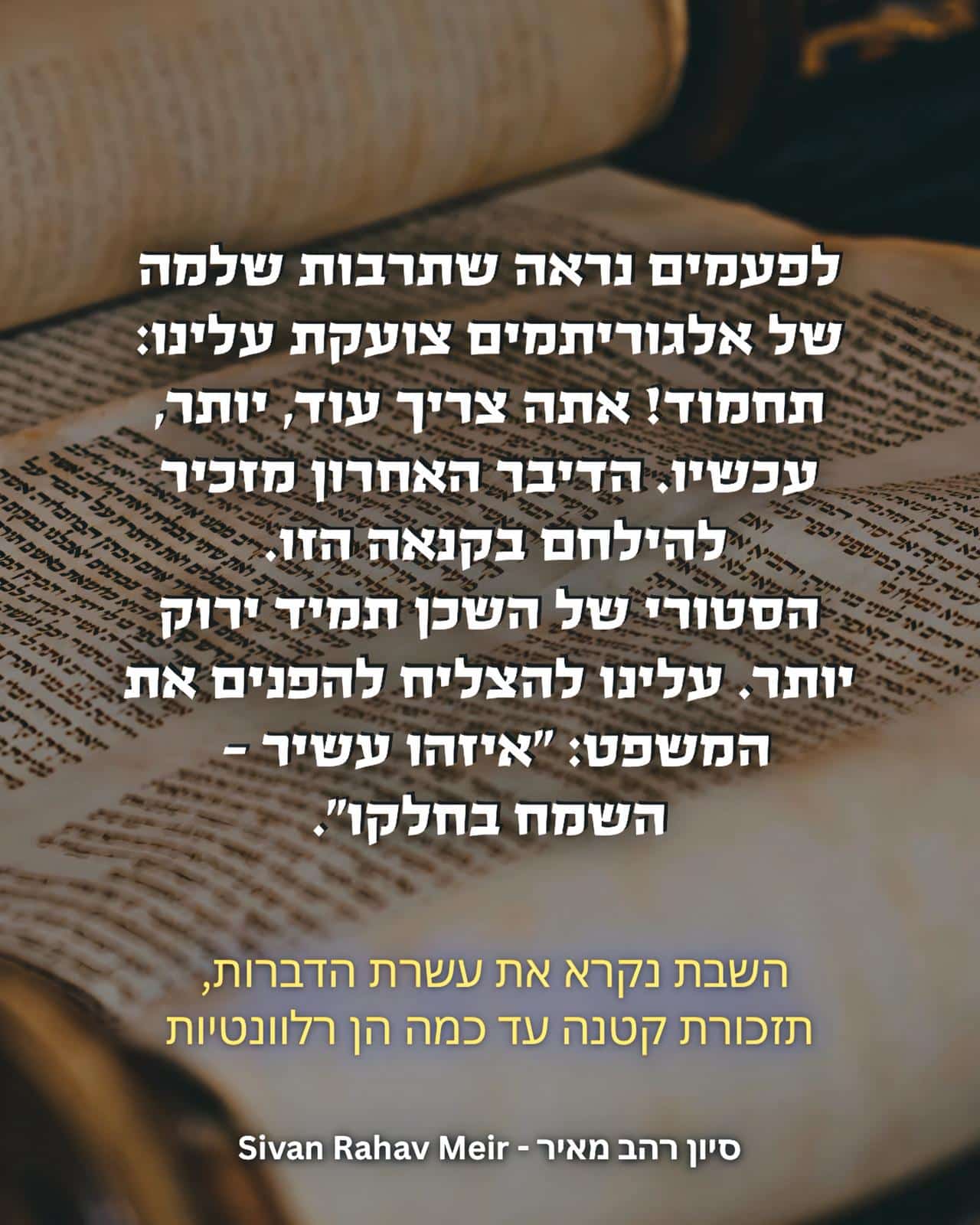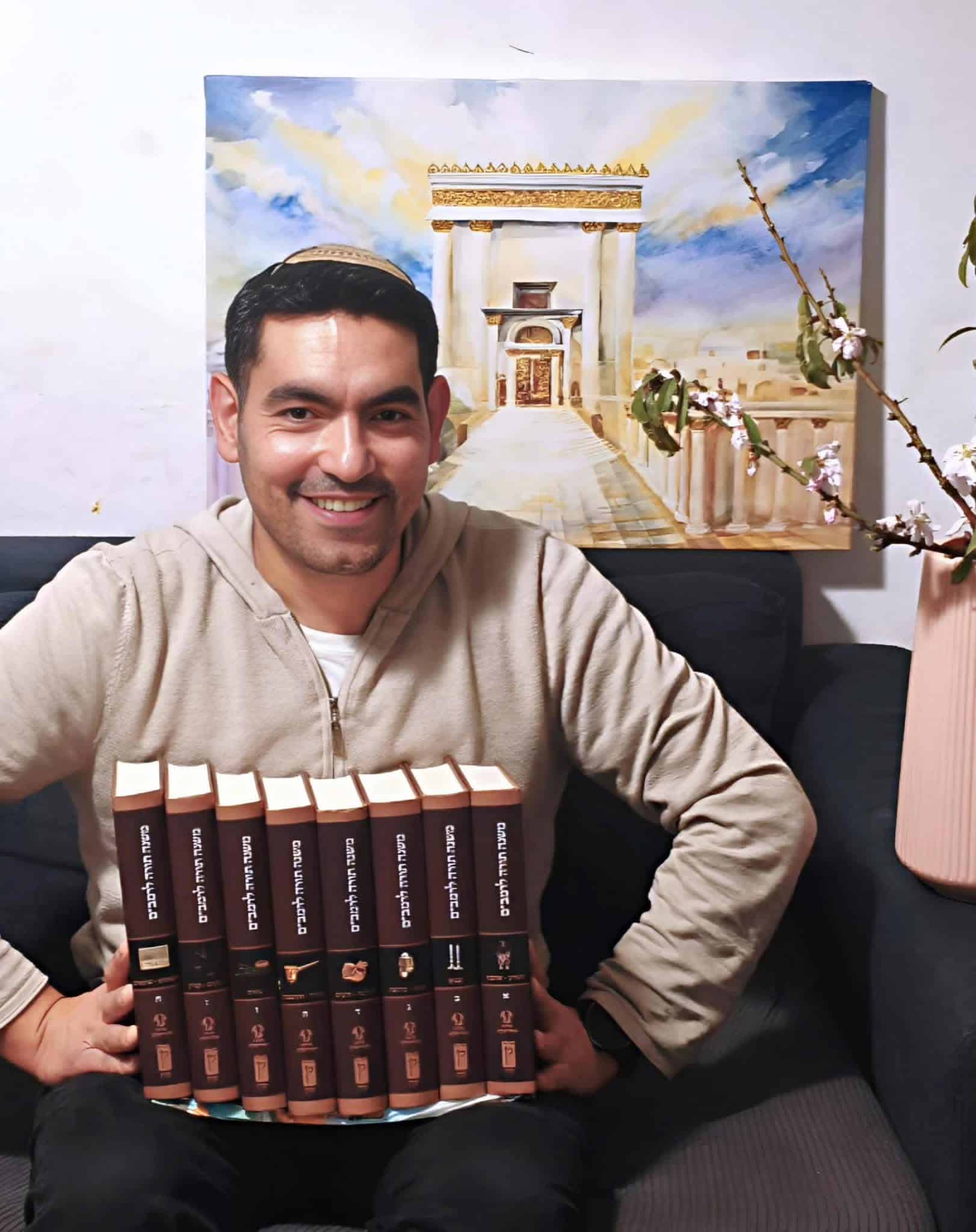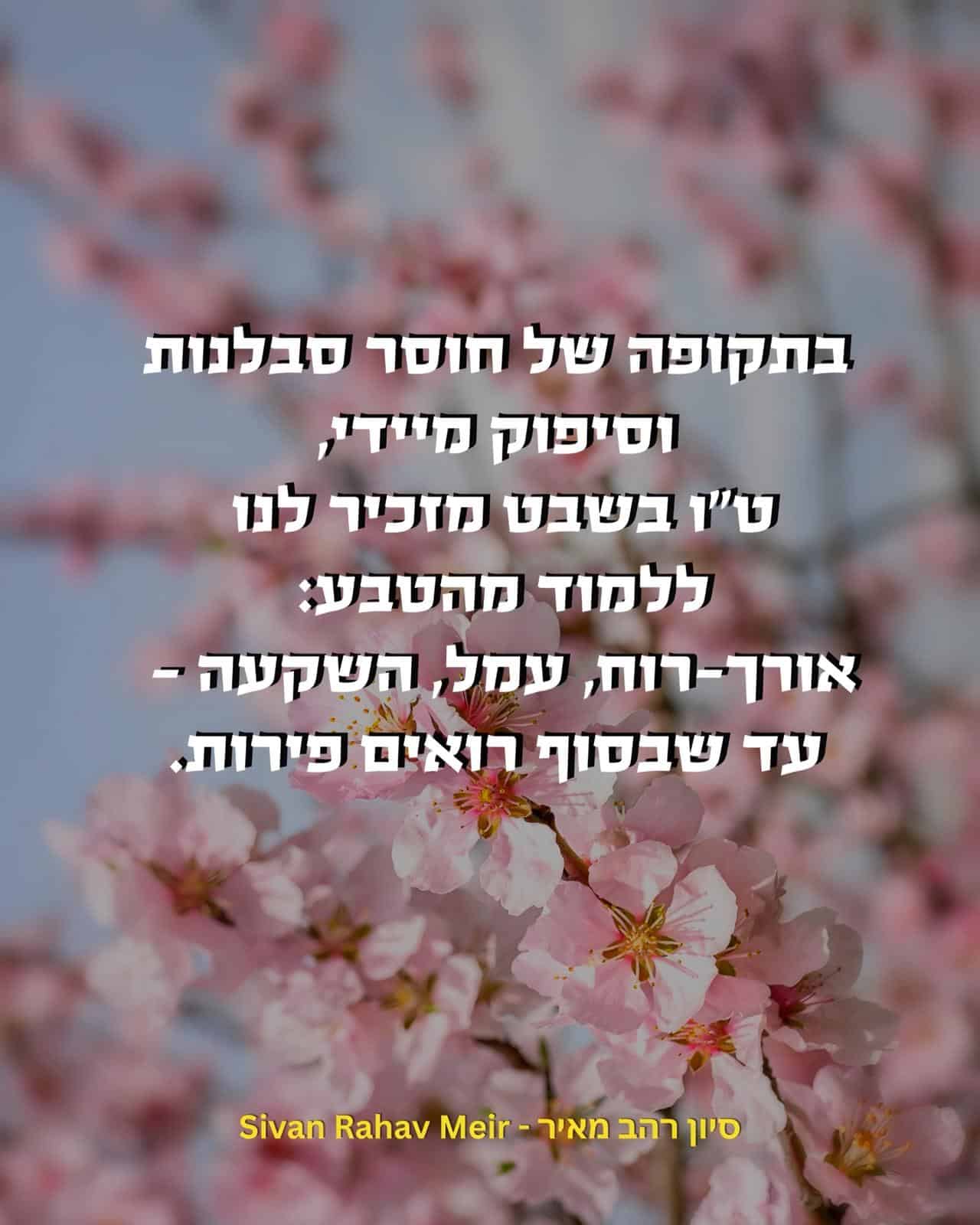* Translated by Janine Muller Sherr
Today is October 7, 2024. It has been one year since that horrific day and our feelings are still so raw. Sometimes it is still hard for us to grasp that this nightmare really occurred and we struggle to find the words to describe the enormity of the catastrophe that befell us. But how will we feel five years from now? And fifty years from now? Will we remember only the brutal attack, or we will recall how we were able to rise up from this trauma and how it became a catalyst for growth and healing?
Rabbi Jonathan Sacks expressed this idea most eloquently:
“In the past Jews lived through catastrophes that would have spelled the end of most nations: the destruction of Solomon’s temple, the Babylonian exile, the Roman conquest, the Hadrianic persecutions, the massacres of the Crusades, the Spanish expulsion. They wrote elegies; they mourned; they prayed. But they did not give way to fear. They did not define themselves as victims. They did not see antisemitism written into the fabric of the universe. They knew they existed for a purpose, and it was not for themselves alone.
Every tragedy in Jewish history was followed by a new wave of creativity. The destruction of the First Temple led to the renewal of the Torah in the life of the nation, exemplified by the work of Ezra and Nehemiah. The destruction of the Second Temple led to the great works of the oral tradition, Midrash, Mishnah and the two Talmuds. The massacres of Jewish communities in northern Europe during the First Crusade led to the emergence of Hassidei Ashkenaz, the German-Jewish pietists… The greatest catastrophe of all led to the greatest rebirth: a mere three years after standing eyeball to eyeball with the angel of death at Auschwitz, BergenBelsen and Treblinka, the Jewish people responded by their greatest collective affirmation of life in two thousand years, with the proclamation of the state of Israel. … Jews [do not] give way to defeat or despair. They are the people of hope.”
“The word for crisis (in Hebrew), mashber, also means a ‘childbirth chair’. The Jewish reflex is to see difficult times as birth pangs. Something new is being born.”
We cannot change the past, but by remembering the past we can change the future. And though we cannot bring the dead back to life, we can help ensure that they did not die in vain.”
I was privileged to curate the booklet, “To Be a Jew: Faith and Hope in Challenging Times,” that contains selected passages from the writings of Rabbi Sacks on how to maintain hope and confront evil, interwoven with inspirational stories from Israel and the Jewish world.
It is available here free of charge. On this significant day, I invite you to download this booklet, read it, and share its profound wisdom with others:
The link to the booklet in English
The link to the booklet in Hebrew
Please feel free to share these links with anyone who might be interested.
I dedicate these words in memory of the fallen, the healing of the wounded, the safe return of the hostages, for victory in war and positive news for the Jewish people in every area. May we merit, with God’s help, to heal our broken hearts.
